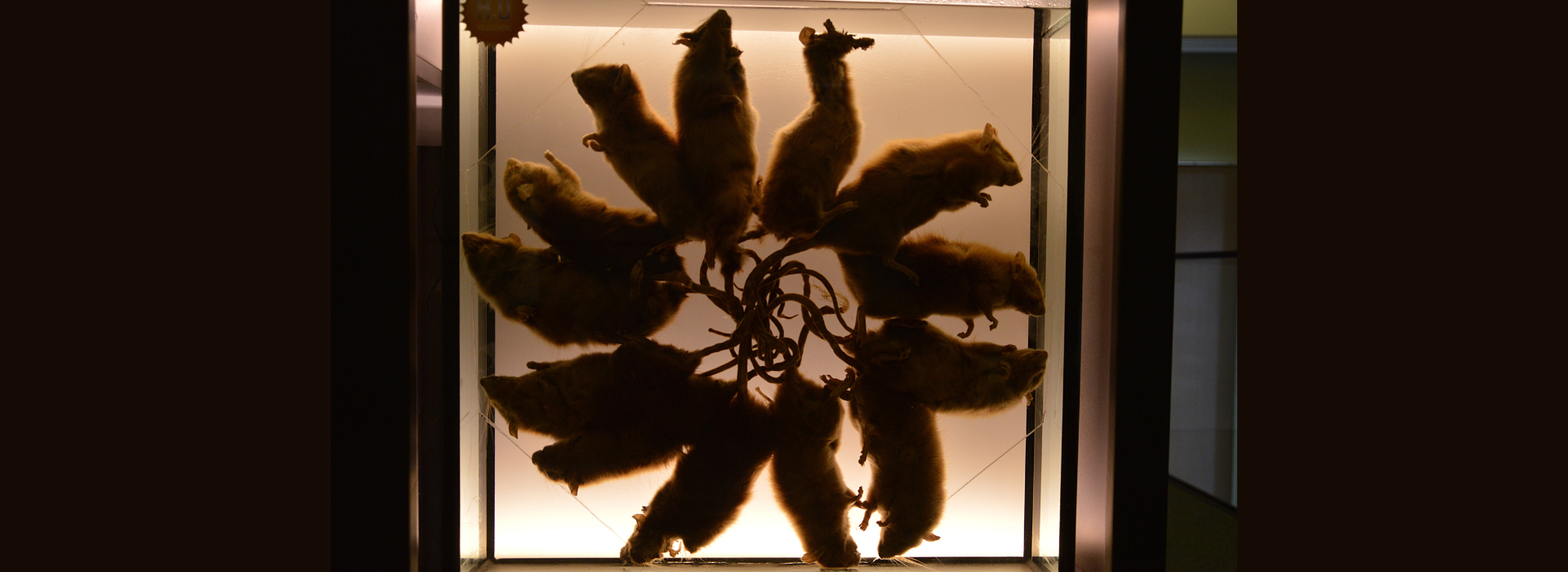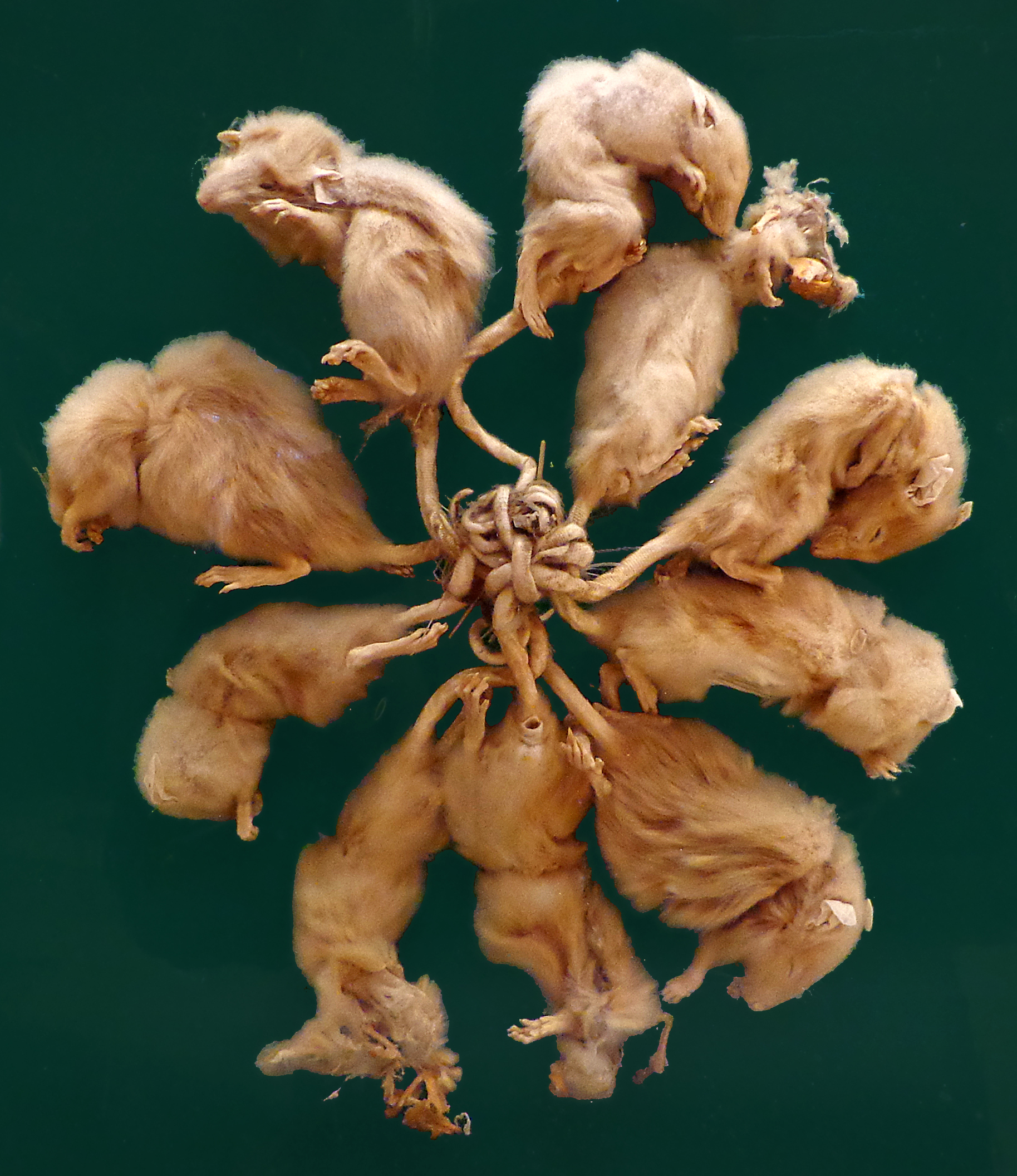Rat King
Rat Kings are a species of highly aggressive mould that will rarely grow on the tails of black rats (Rattus rattus). The fungus typically does not reach maturity before the death of the rat, and the destruction of the mould. In the case that maturity is reached, however, the fungus will root into its rat host. Through this root, the mould will spread throughout the rat's bloodstream from the tail and eventually take over the host entirely. In later stages of maturity, it will cause a large, sticky growth to form on the host's tail in an attempt to snare another ratty victim. This process will repeat over and over, joining each rat by the tail until the mould's destruction or until the mould successfully reproduces.
Once the mould produces its fruiting body — a large puffball of putrid-smelling greenish foam — the rat king will die. The foam swells for six or seven days before eventually bursting into a cloud of spores, leaving the bodies of the dead rat king behind and infecting every black rat in the immediate vicinity.
The spores are short-lived, and can only survive for a few hours without a host. As of the current date, only black rats have been discovered carrying either the mould or living spores.
The Hamburg Incident
The smell of the mould's fruiting body has been likened to that of "rotting kale, feces, and stale urine" all combined into "a mass of dully chartreuse, bubbling ick" by an eye-witness of the rat king's reproductive method. The rat king in question had managed to snare twelve rats in the sewer and subway systems of Hamburg, Germany before instating reproduction in a subway tunnel. The smell was reported the day before investigators found the rat king's corpse and the fruiting body sprouting from it. While attempting removal, the fruiting body was ruptured and released "noxious-smelling" immature spores. Although the rat king's corpse and fruiting body were destroyed by authorities, the area was quarantined until no trace of the spores could be found and the investigators were hospitalized. The quarantine lasted for two days and the investigators were in monitored isolation for two weeks. Three of the four investigators are reported to have become violently ill in the hours after the discovery and removal, but all three recovered with no observed lasting effects within six days.Basic Information
Ecology and Habitats
Rat kings have, as of February 2023, only been sighted in Germany and Austria. Their range has the potential to grow exponentially much like the black rat's did, and efforts to contain the spread of the fungus have been in discussion among the officials in the New Creatures Division.
Dietary Needs and Habits
Although no observations have been made of a rat king eating or drinking, it is believed that the organism is a parasite until maturity. It is likely a parasitoid once it reaches maturity, subsisting directly off the body of its host even as it causes the host's death.
Behaviour
Rat kings are notably more aggressive than an average black rat. They will attack perceived threats with their claws and teeth. In at least one instance, a sanitation worker was not only attacked but pursued to the surface. In the same instance, the rat king showed that ordinarily fatal damage to the rat bodies does not kill the organism.
WIP
Streamer
Missing
Status: Location Unknown
Deceased
Status: Deceased Character
Retired
Status: Retired Character or Article
Scientific Name
None Assigned
Lifespan
Until destruction or reproduction
Conservation Status
These lifeforms tend to be highly aggressive, and most — if not all — organizations are more concerned with their extermination than their conservation.
















Comments